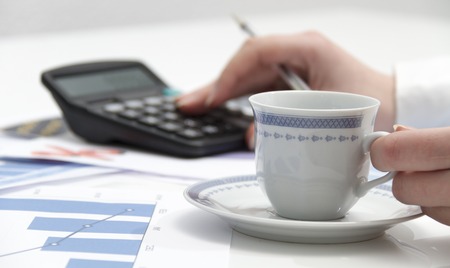
Copyright: elmirex2009 / 123RF Stock Photo
Small business owners make tough trade-off decisions every day. They don’t have deep pockets and weigh heavily decisions about how to spend their limited resources. If they spend money on one thing, another tends to get neglected. It’s a constant struggle.
As tax season approaches, many small business owners wonder whether it is worth hiring a CPA to do their taxes. Being an accountant, it is not uncommon for me to be asked:
- “what would you charge to do my taxes”;
- “what do I get in exchange”; and
- “why shouldn’t I just use H&R Block or one of the better-known tax software packages like Turbotax, H&R Block at Home or TaxAct”.
I’m going to answer these questions below. If you have any other questions or need assistance, please call (215-342-4200) or fill out one of our contact us forms. I’ll do my best to help.
How CPAs Charge For Their Services
CPA’s generally charge for their services in one of two ways:
- an hourly rate; or
- a flat fee based on the number of forms that need to be filled out or the complexity of your tax return.
In exchange for that fee, CPAs check and double-check all your transactions (deposits & disbursements) and bank statements. They reconcile your accounts for accuracy and completeness. They make sure you get every deduction and credit you are entitled to.
CPAs compare year-to-year and other company and industry ratios to your own when they’re preparing your taxes. They do this in order to identify trends and measure the overall financial health of your business. If something looks unusual or unexpected, you’ll be made aware and given the opportunity to do something about it. These same ratios can be used if you are considering a loan or investment.
CPAs file your return on time and button up your books so if you do get audited, they are well organized, complete, accurate and totally defensible. Most small businesses will eventually get audited at least once. If certain expenses are too high or industry ratios are out of whack, it increases the likelihood that your business will stand out and be flagged for review.
The hourly rate for certified public accountants (CPAs) in the Philadelphia market right now ranges from $100-$300 per hour, depending on who does the work. If a senior CPA / manager or partner does the work, the fee is higher but they can usually do the work faster than a more junior person. Depending on your specific situation, you could actually end up paying less and saving more by using a more expensive (read experienced) person.
Most firms have a mix of skills that allows them to get the work done quickly, accurately, and affordably. Junior staff members will do a lot of the legwork; senior staff members will review to ensure completeness, accuracy, and no missed opportunities.
Tax Prep Software and Non-CPAs

Copyright: rawpixel / 123RF Stock Photo
Using tax preparation software like Turbotax, H&R Block At Home, TaxSlayer, and TaxAct is an option and okay for people and businesses with very simple tax returns. If you are self-employed or have capital gains income, for example, these might not be a good fit for you. You should also weigh the time it takes to review, select, learn, and complete these applications. There are significant differences in terms of software price, ease of use, options, and supporting documentation.
The other significant consideration is that although Non-CPAs generally charge less to do your taxes, they may not be able to represent you if your return ends up being audited unless you’re using an enrolled agent.
According to the National Association of Enrolled Agents, an “enrolled agent (EA) is a federally-authorized tax practitioner who has technical expertise in the field of taxation and who is empowered by the U.S. Department of the Treasury to represent taxpayers before all administrative levels—examination, collection, and appeals—of the Internal Revenue Service. In addition to taxpayer representation, enrolled agents often provide tax consultation services and prepare a wide range of federal and state tax returns.”
Enrolled agents charge less, but they’re also less qualified. Consumer Reports Magazine says,
CPAs must complete 150 credit hours of undergraduate course work, pass a 14-hour licensing exam, and take continuing-education courses to maintain their state licenses. Enrolled agents must pass three 4-hour exams on tax codes and calculations or have worked for the Internal Revenue Service for at least five years in a position that required interpreting and applying the tax code. They must complete at least 72 hours of continuing education every three years.
Molly McCluskey at US News compared the cost, convenience, and safety of Turbotax, H&R Block and TaxAct last year. She also pointed out the importance of factoring in the cost of support, both during filing and in the case of an audit.
Ask For an Estimate
CPA’s are an important resource for small businesses. They can help with your peace of mind and leave more money in your wallet.
Most CPAs and tax preparers will be happy to give you an estimate before doing the work. Shop around. You may find a center city CPA firm charges more because of higher overhead costs. Make sure whoever you decide to work with is a good match for your needs and has experience with your type of business and transactions (for example, stock, rental properties and/or investments). The best choice for you is going to be the firm that is familiar with your type of situation, pays attention to detail, is responsive to your needs, and minimizes your tax liability.
This is the first year where I have made enough money to qualify for taxes and I want to make sure that I do everything right and wanted to know how to help the process along. You talked about how CPA’s compare year-to-year ratios with your own to help prepare taxes to find trends and understand your overall financial health. I had no idea that they could be so helpful with taxes so that everything is searched over.